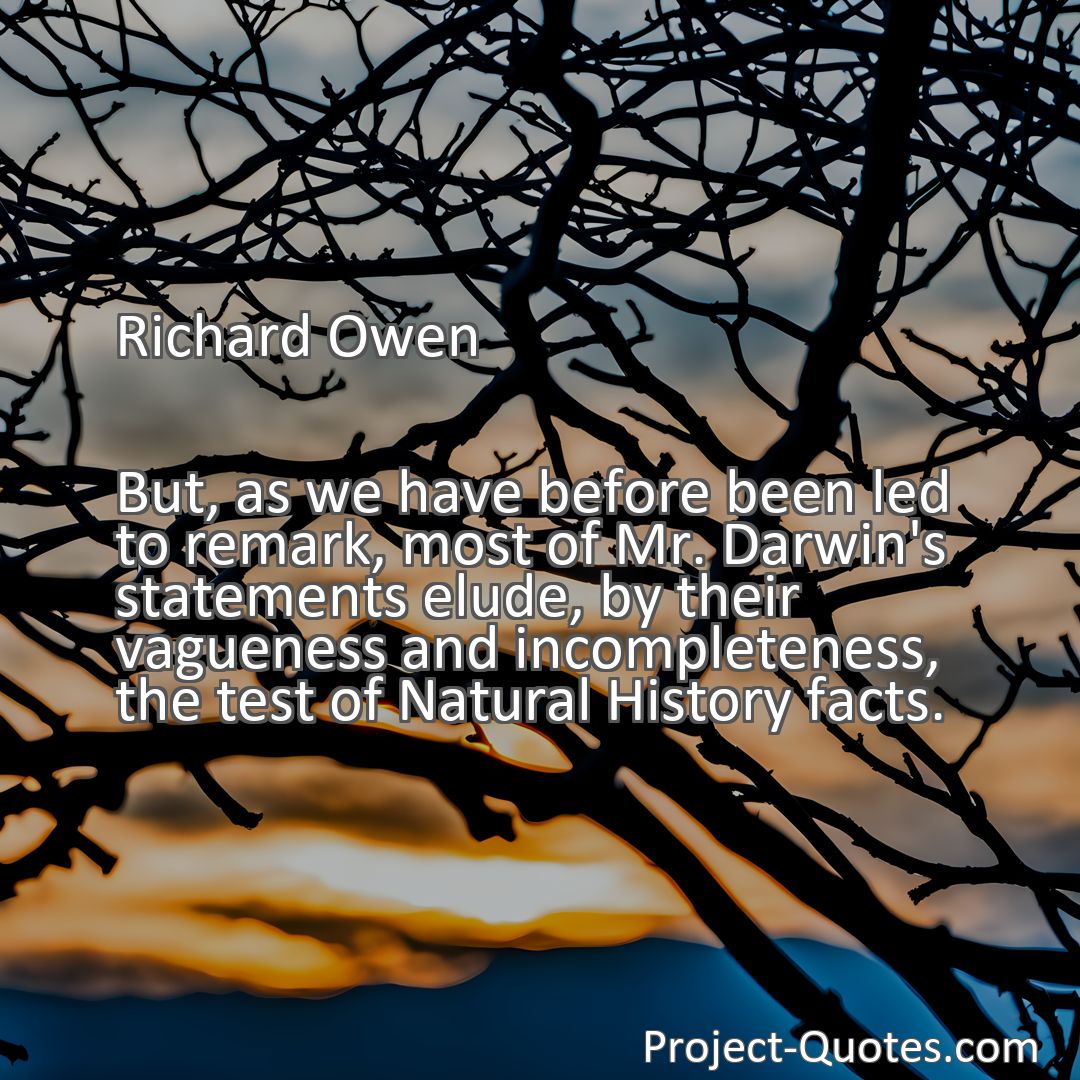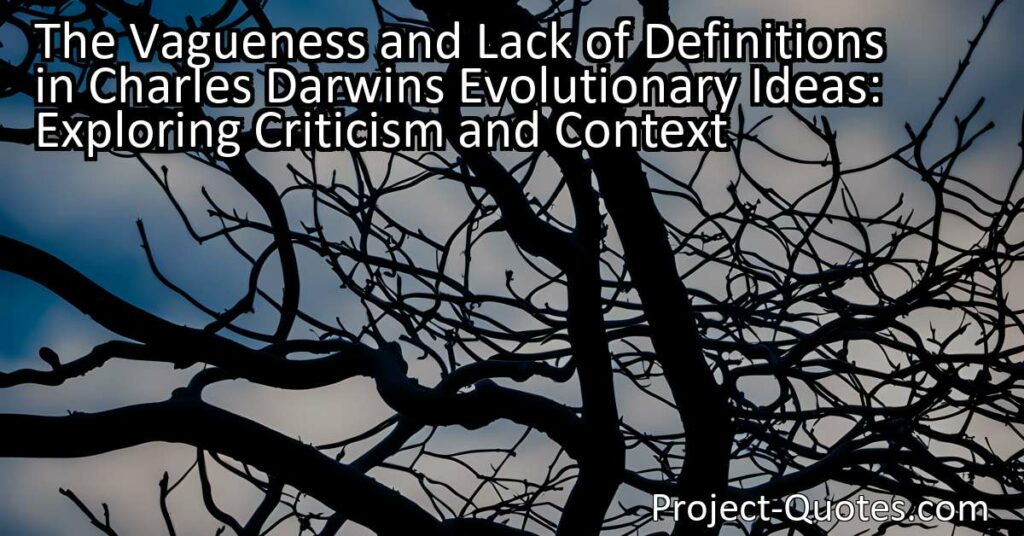But, as we have before been led to remark, most of Mr. Darwin’s statements elude, by their vagueness and incompleteness, the test of Natural History facts.
Richard Owen
The Vagueness and Lack of Definitions in Charles Darwin’s Evolutionary Ideas: Exploring Criticism and ContextCharles Darwin’s evolutionary ideas have been criticized for their lack of clear definitions, making it challenging to evaluate or test his theories. Critics argue that without precise statements, it becomes difficult to conduct experiments and gather evidence to support or disprove his claims. However, it is important to consider the historical context and limitations of scientific inquiry during Darwin’s time, as his work served as a foundation for further research and advancements in our understanding of evolution.
Table of Contents
- 1 But, as we have before been led to remark, most of Mr. Darwin’s statements elude, by their vagueness and incompleteness, the test of Natural History facts.
- 2 Richard Owen
- 3 Meaning of Quote – But, as we have before been led to remark, most of Mr. Darwin’s statements elude, by their vagueness and incompleteness, the test of Natural History facts.
- 4 Freely Shareable Quote Image
- 5 Related
Meaning of Quote – But, as we have before been led to remark, most of Mr. Darwin’s statements elude, by their vagueness and incompleteness, the test of Natural History facts.
Have you ever wondered about the theory of evolution and the work of Charles Darwin? Well, one thing that has often been discussed is the clarity and completeness of Darwin’s statements. In fact, many people have pointed out that some of his ideas are vague and lack the support of real-world evidence from the field of Natural History. In this article, we will delve deeper into this topic and explore the reasons behind this criticism.
Firstly, it is important to acknowledge that Charles Darwin’s work on evolution has had a profound impact on the scientific community and our understanding of the natural world. His book “On the Origin of Species” revolutionized the field of biology and laid the foundation for modern evolutionary theory. However, as with any scientific theory, it is subject to scrutiny and critique in order to refine and enhance our understanding.
One of the main points of criticism towards Darwin’s statements is their vagueness. Some argue that his ideas lack clear definitions and specific explanations, making it difficult to evaluate or test certain aspects of his theory. This can be seen as a limitation in the scientific method, where observations and experiments are crucial in providing evidence for or against a hypothesis. Without precise definitions and clear statements, it becomes challenging to conduct experiments and gather data that can either support or disprove Darwin’s claims.
Moreover, the incompleteness of Darwin’s statements has also been a point of contention. Critics argue that his work often fails to encompass the full breadth of Natural History facts and observations. This can be problematic as it leaves room for interpretation and opens the door to alternative theories or explanations. Without a comprehensive understanding of the natural world, it becomes difficult to fully embrace and apply Darwin’s ideas.
However, it is important to recognize that Darwin’s work was groundbreaking for its time. During the 19th century, when he was formulating his ideas, the field of biology was still in its early stages of development. It lacked the sophisticated tools and technologies that we have today, which allow us to examine and analyze the intricate details of organisms and their environments. Therefore, it is understandable that Darwin’s statements may have been limited in terms of specificity and completeness.
Furthermore, it is worth noting that Darwin himself was aware of the limitations of his work. In his writings, he often emphasized the need for further research and investigation to solidify his claims. He acknowledged that his theory was not without flaws and encouraged scientists to explore different lines of inquiry to refine and expand upon his ideas. This demonstrates Darwin’s humility and commitment to the pursuit of knowledge, even in the face of criticism.
Additionally, it is crucial to recognize that science is an ongoing process. The field of biology, just like any other scientific discipline, evolves over time as new discoveries and advancements are made. Darwin’s theory of evolution provided a framework for understanding the interconnectedness of all living organisms, but it is not the endpoint of scientific inquiry. Scientists continue to build upon his work, conducting rigorous experiments and gathering empirical evidence to strengthen our understanding of evolution.
In conclusion, while Charles Darwin’s theory of evolution has had a significant impact on our understanding of the natural world, it is not immune to criticism. Some have pointed out the vagueness and incompleteness of his statements, arguing that they do not meet the standards of Natural History facts. However, it is important to consider the historical context in which Darwin was working, as well as the limitations of scientific inquiry during his time. Science is an ongoing process, and Darwin’s theory of evolution serves as a foundation upon which further research and advancements are built. By embracing open-mindedness, conducting rigorous experiments, and constantly seeking to expand our knowledge, we can continue to refine our understanding of evolution and the natural world.
I hope this quote inspired image brings you hope and peace. Share it with someone who needs it today!


